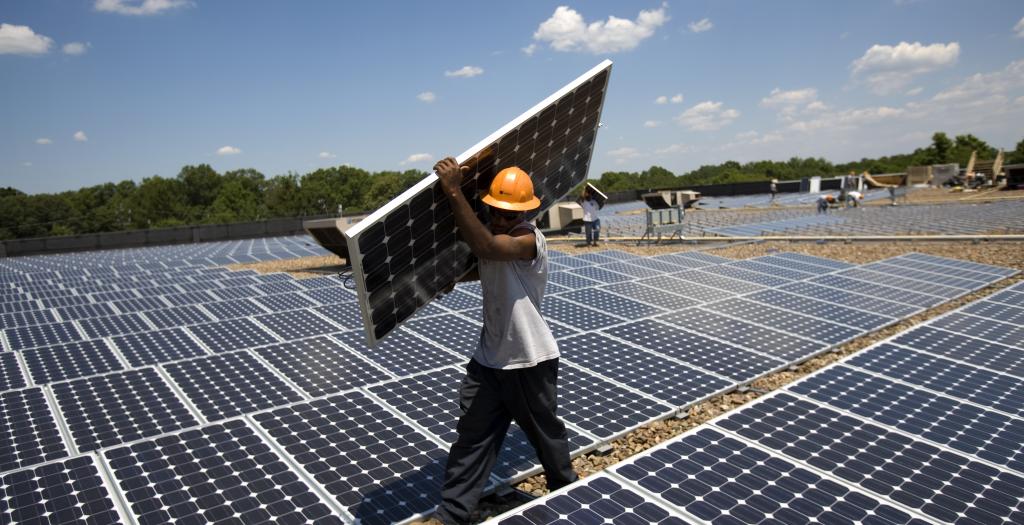
Johann Schutte writes: A recent report on The Geopolitics of Renewables, looks at how renewables are changing the dynamics of international power. The report, from the International Renewable Energy Agency, says we’re seeing the end of the domination of the global energy market by a small number of large fossil fuel providers. Renewables are changing the political rules as well as the energy rules.
Shifting supply chains
Oil is a tradable commodity — there’s a reason why production is measured in barrels. It relies on a complex distribution system: rigs, tankers, refineries, pipelines and so on. Renewables, in contrast, can be generated almost anywhere in the world and are distributed as a flow of energy instead of a stock to be sold. By nature it is more regional, enabling the rise of regional powerhouses with strong advantages in renewable generation and distribution capacity. These countries and regions will export their surplus electricity to neighbouring countries.
Stranded assets
But the transition needs to be managed carefully. There’s a significant risk of “stranded assets,” in the oil and gas sector, as the value of oil production and distribution assets on balance sheets no longer match their productive potential. Something like $12 trillion of assets could be at risk. What do we do with all those tankers and rigs?
Golden opportunities
The winners in this transition are countries which focus on
- mining of raw materials necessary for components and batteries, such as cobalt, nickel, and lithium
- researching of renewable energy (such as wind, solar, hydro and storage)
- manufacturing and exporting of generation and storage components such as solar panels or batteries.
One of the implications of this is that while the flows of energy are regional, the supporting ecosystem will be global.
Power to the regions
If the report gauges future energy developments accurately, it looks as if regional politics and economics will become much more important. Energy trading and its associated statecraft will now have a regional focus. Energy will also become the centre of regional conflicts. Local energy sources such as hydro, and their associated rivers, are often on shared borders. At the same time, those actors will also be navigating the challenges of managing climate change impacts, that will also play out at a regional rather than a global level.
Johann Schutte is a SOIF foresight specialist. He is based in Cape Town.
